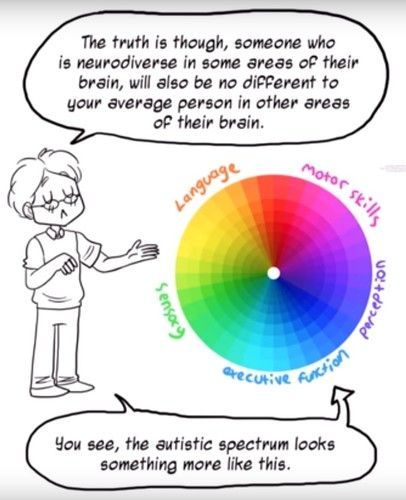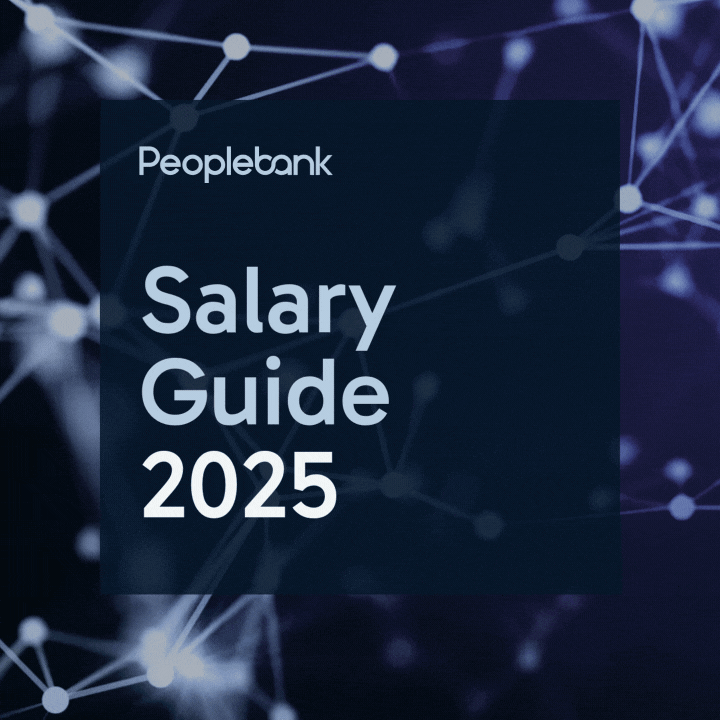Autism at Work
What is Autism Spectrum Disorder?
Autism is a neurodevelopmental condition defined by behavioural characteristics. Core characteristics can be differences in social communication and restricted and repetitive behaviours. Some people on the spectrum have a combativity with other conditions such as anxiety, depression, epilepsy and PTSD. These other conditions have varying levels of seriousness. In fact, everyone on the spectrum is unique, displaying different characteristics and levels of severity. Stephen Shore highlighted the complexity of Autism by saying “if you have met one person with autism, you’ve met one person with autism.” Each person with autism will have a set of traits, all in different areas of the spectrum. Concerning areas in which they do not have a trait function they can operate in the same way as any other neurotypical person but may be affected by circumstances. For example, they may be good at listening but get overloaded in loud or crowded places which makes conversation hard for them.

Why do people with Autism Spectrum Disorder (ASD) struggle when finding or keeping work?
People with ASD are very capable workers and have a normal range of intelligence like neurotypical people. Yet 80% of people diagnosed with ASD are unemployed or underemployed. Here is why...
Interviews with equivocal language are confusing. "Tell me where you want to be in 5 years", is one of the vague and confusing phrases people often hear in interviews. To a neurotypical person, this question relates to work employment and what role they will be doing. To someone on the spectrum, it is overwhelming as it could mean, physically where will they be in 5 years. Some people on the spectrum will also find it difficult to read the interviewers’ body language so they may miss important cues and social norms. And if they are talking about an area they are passionate about, they can get overly animated and excited.
Many people with ASD do not last long in a role. Often managers with no education around this matter will misinterpret their social inaccuracies as impolite. People with autism can also be viewed as hard work for managers who are too reliant on their autonomous team. Majority of individuals with ASD cannot deal with ambiguous tasks and need direct and clear instructions. Some people on the spectrum need to record conversations to process instructions in a quiet safe place or to take copious notes so they can fully understand a task.

Benefits of neurodiversity
People on the spectrum frequently demonstrate strengths and qualities that are valuable in business. They are often trustworthy and reliable. They exhibit great memory skills and are proficient in paying attention to detail.
“Once employed, individuals with ASD often demonstrate particular strengths, such as attention to detail and intense focus that result in increased work output and may enjoy performing jobs often shunned by others due to social isolation or the repetitive nature of the task”
-
Dawn Hendricks, ‘Employment and adults with autism spectrum disorders: Challenges and strategies for success
According to the article Autism at Work: Hiring and Training Employees on the Spectrum on trainingindustry.com, “Austen Weinhart, COO of Coding Autism (a coding boot camp for people with autism), says that “the traits that are usually … associate[d] with people on the spectrum correlate really strongly with those of a successful coder.” Those skills include “pattern recognition, strong attention to detail” and a “very direct communication style.”
Other than particular skills, the importance of neurodiversity also assists innovation. For one thing, if we employ people on the spectrum, they will think about most things in different ways to us. Adults with ASD are able to think outside of the usual and have the tendency to be creative. Businesses should be encouraging and appreciating completely new perspectives as these viewpoints are often the crux of driving innovation. Staff with ASD can also improve the productivity of an organisation. Testers working for the Department of Human Services in Canberra have been found to be 130% more effective than their neurotypical peers.
But it’s not only about what people with ASD can offer corporations. There is also the humanitarian factor. People with ASD deserve to have the same rights and privileges as the rest of society. They should be able to earn a wage and support themselves. When they are employed they are able to pursue their interests and find a sense of purpose. This, in turn, “promotes personal dignity and has been demonstrated to improve quality of life in individuals with ASD as well as improving cognitive performance”.






















